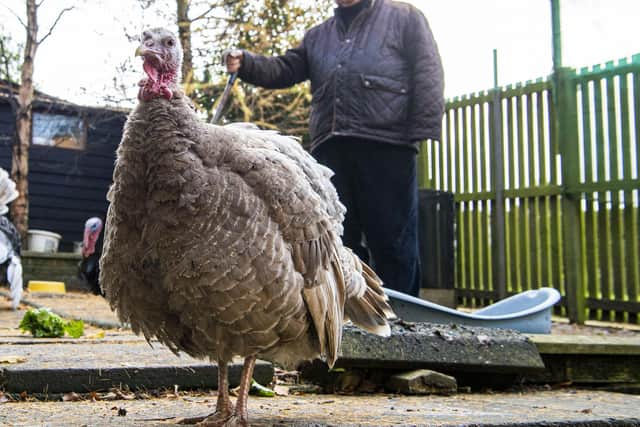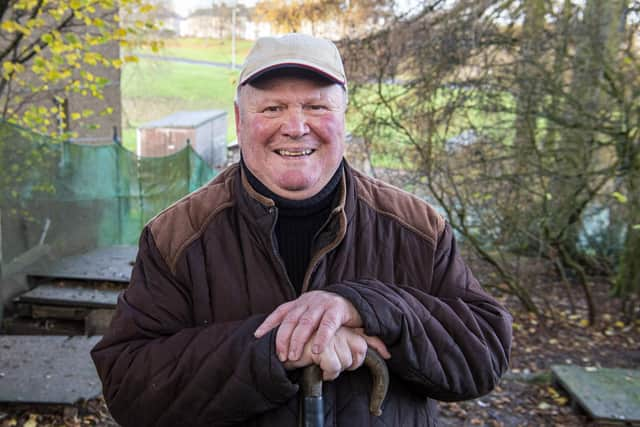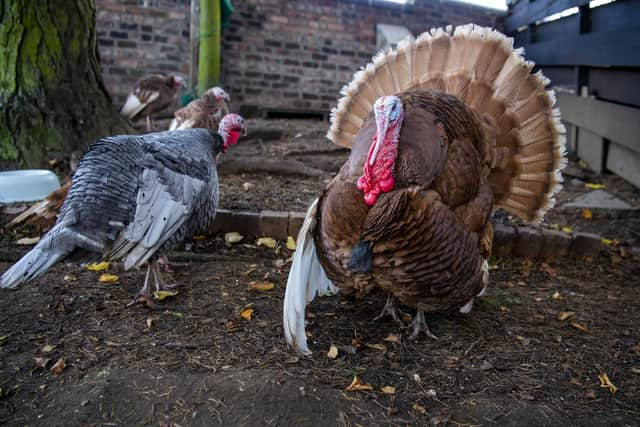Watch: Meet the Scottish pensioner who walks some of the world’s rarest turkeys through his village
The 74-year-old has become something of a local celebrity in the village of Camelon, Falkirk, where he regularly walks his collection of 26 turkeys with his sister Gillian.
“The birds are a great de-stresser,” he explains, “and they give me a tremendous amount of joy.”
Advertisement
Hide AdAdvertisement
Hide AdBut Brian’s passion used to focus on an altogether speedier breed of animal.


“I must have had sixty greyhounds over the years,” he says, “but the tracks gradually closed.
“Sky Sports was the worst thing for the sport - nobody wanted to spend a cold winter’s night at the track when you could watch it inside on the telly.
“So I was looking for something to do. I’ve always been interested in poultry, particularly the larger breeds - and the largest of them all is the turkey.”
Brian spent more than two years learning about the animal before he bought his first one.


Now Brian’s decade-old flock contains some of the rarest breeds in the world, including Bourbon Red, Bronze Turkeys, Blur Turkeys, Norfolk Blacks.
“It’s quite a job to remember all their names,” laughs Brian, “but I love them all equally.
“They undoubtedly have personalities. I sit in my garden chair and watch them all gradually come closer and closer. They want to be beside you. It’s quite touching really.”
Advertisement
Hide AdAdvertisement
Hide AdSome of the breeds in Brian’s flock have been in Britain since they were first imported in the 16th century.


“They are all endangered now, with maybe two exceptions.
“There are perhaps only 60 of the buff-coloured turkeys left in the world. These birds need help.”
It costs roughly £5 to keep a turkey each week, Brain explains. While it might not seem like much, Brian has 26 beaks to feed.
Despite the cost of rearing his turkeys, Brian insists he has “never regretted it”.
And the job comes with its perks.
Brian is a bit of a local celebrity in Camelon, where he walks his flock regularly.
Asked how the ritual started, Brian says: “When I first got the turkeys they were like kids. They wanted to find out about the world around them.
“They used to wander about all over the place. It was trouble enough keeping them out of my neighbour’s garden.
“So I’d take them foraging - just doing what they would do in the wild. I believe it keeps them in better condition.”
Advertisement
Hide AdAdvertisement
Hide Ad“I was a source of ridicule when I first started. People would say: ‘What's he doing parading them up and down like that?’
“I used to get cat-calls and people making turkey noises at me,” Brian laughs, “But I’d always wave to them so they knew I wasn’t grumpy.
“But now the turkeys are very popular - people have embraced them. It gives them a feel-good factor.
“I’ve had people come from all over the world to see them; New Zealand, Australia, America.
“My job is to persuade people to start keeping these beautiful birds. So far one or two have converted,” he laughs.
Wattle Brian do next? He’s still hoping to convert a few more.
A message from the Editor:
Thank you for reading this article. We're more reliant on your support than ever as the shift in consumer habits brought about by coronavirus impacts our advertisers.
If you haven't already, please consider supporting our trusted, fact-checked journalism by taking out a digital subscription.
Comments
Want to join the conversation? Please or to comment on this article.
